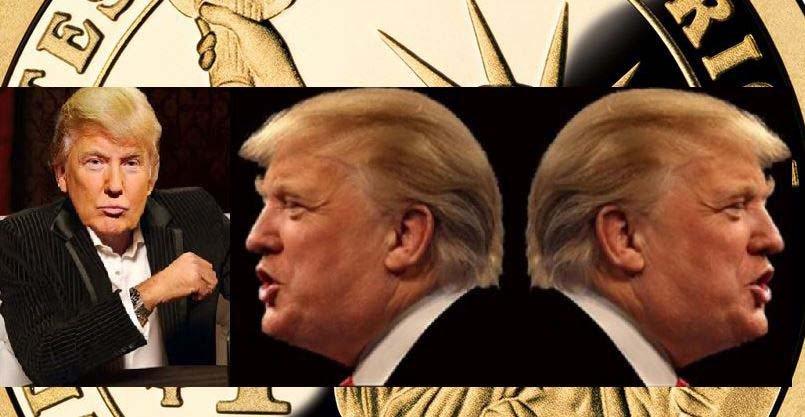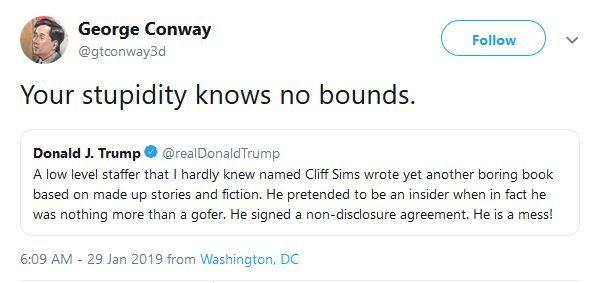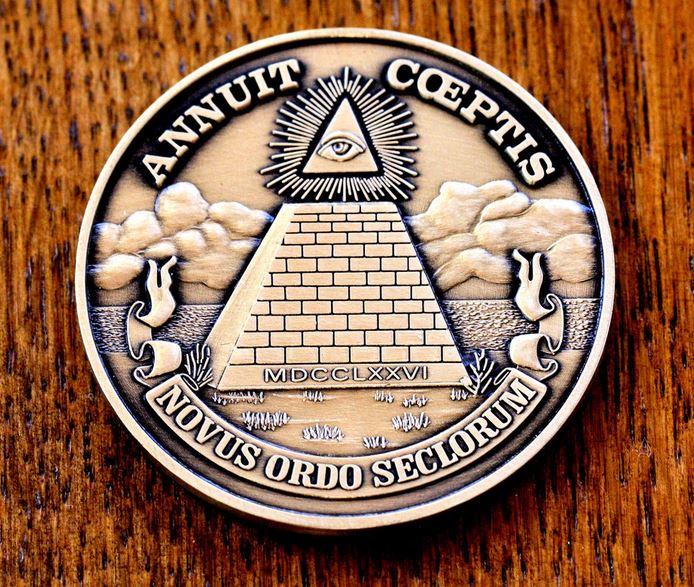It’s not Modern; it’s not Monetary; and it’s really not much of a Theory
If ever there was a prime example of a belief in the Fairy Gov-a-Mother being mixed with a bad case of warmed-over monetary crankdom, the suddenly, newly- fashionable doctrine which masquerades under the portentous-sounding name of ‘Modern Monetary Theory’ – ‘MMT’, for short – must surely qualify.
Built upon that age old deceit of Planners that they – and the offices of the state and its bureaucracy which they occupy – provide a more rational means of organising people’s lives than can the Good Common Folk ever attain themselves through the voluntary relations and market-dealings which they conduct, MMT seeks primarily to overcome the well-founded objection that even the most benign and far-sighted government should notspend wildly beyond whatever it levies by means of the many taxes, fees, licences, transaction charges, and miscellaneous other exactions it can persuade its long-suffering subjects to endure.
The way it does this is to marry a decidedly old school of monetary thinking called ‘chartalism’ – child of the court intellectuals of Imperial Prussia and stepfather to the Weimar hyperinflation – to that other hoary old canard that the public debt does not matter since some faceless ‘We’ are said to owe it to ‘Our’ equally anonymous ‘Selves’.
Starting – as does so much that is bad about mainstream economics – with a simplistic and crushingly aggregative set of tautological identities which emanate from, who else, but that evil genius, Keynes – the MMT crowd next perform a few rounds of high-school algebraic manipulation to make these conveniently-defined, but thoroughly abstract, entities line up to ‘prove’ that every penny of government deficit spending must perforce be matched by an equal and opposite penny of private sector saving.
Hey, Presto!, they cry, we have now demonstrated that even the most incontinent of regimes can neither immolate the nation in a damaging blaze of inflation nor allow anti-social ‘hoarders’ and parasitic ‘rentiers’ to suffocate it in a deflationary deep freeze of miserly abstinence.
From this assertion – and here is where the ‘chartalism’ bit comes in – as long as the state uses its full apparatus of legalized violence to ensure that ITS obligations are the only things that pass for money (so no silver, no gold, no rye-backed notes, cigarette coupons, cowrie shells, or bitcoins), it can always fund its Big Digs, its high-speed rail lines, its bridges-to-nowhere, and its nine-days’ wonder, Olympic stadia, as well as all the day-to-day vote-buying and special interest-coddling to which this most caries-ridden of Tooth Fairies routinely stoops.
You – the poor ‘saver’ who has given up your own choice of goods in order to make such miracles possible – might be forgiven for casting a jaundiced eye at such evidence of either expensive pyramid-building or plain, old-fashioned, exhaustive consumption of Other People’s Money and enquire politely just what of productive value is being created in order that your ‘savings’ at least preserve – and hopefully increase – their value.
Once you start down this route, you will soon realise that it is only in the narrowest of contexts that the MMT brigade can be said to have a point: namely, that if the Gummint does confiscate our wealth, we will necessarily consume less than we might have wished to and so – in some perverted sense of a very overworked word- we might just be said to have ‘saved’ that much.
Not only to elevate this Sheriff of Nottingham practice of legitimised banditry into a major policy plank, but to dress the perps up in Lincoln Green so they can pretend to be Robin Hood’s Merry Men does take quite some neck, as I’m sure you will agree!
Granted, the state robbers in the MMT vision of the future are craftily going to disguise their theft by issuing us with a requisition chit in the form of their fiat currency – and will thereby so deftly pick our pockets that it might take us some while to work out that we have indeed been had.
But this sleight of hand hardly mitigates the severity of the crime or lessens the ultimate degree of loss we will suffer. After all, even such a tender-hearted, small-government paragon as Mussolini famously declared that you could not increase a country’s wealth simply by issuing extra paper portraits of its rulers!
Into the Fires of Moloch
The crucial distinction the MMTers seem congenitally unable to make in the course of their half-finished reasoning is that while their precious accounting identity (that Deficits equals Savings) may, under certain very restricted circumstances, be said to hold true, the dynamics, the process – the PRAXEOLOGY, if you will – of what is at work is what matters most.
Thus, very different results follow in the case where a man voluntarily decides up front (ex ante, in economist-speak) to finance some other entity’s expenditures in exchange for a promise to pay later – as opposed to the one where he finds that, after the game has been played for a round or two (and so, ex post, in the Latinate jargon), he has been landed with what none other than the Beelzebub of Bloomsbury, Keynes himself, once referred to as, “the bad, or depreciating, half-crown”.
In the first case, though not guaranteed to win the pot from his competitors, he is at least playing his own hand fairly and squarely: in the second, he not only looks around the table and realises HE is the proverbial patsy, but that the House is four-flushing and the dealer has a sleeve stuffed with extra aces.
More fundamentally still, the simple fact is that the whole of economic science must be founded on a real-world concept of the scarcity and finiteness of means. This is a requirement which utterly escapes the MMT wizards who instead seem to think that their special insights allow them, along with Shakespeare’s blowhard Glendower, to ‘summon spirits’ – and boundless economic means along with them – ‘from the vasty deep’.
The idea that, regardless of the magnitude of government spending, you, I, and our next-door neighbour can happily provide its clamorous army of functionaries, contractors, and welfare recipients with as many real resources as they need is clearly a nonsense of the first order.
Ask anyone whose grandparents were unfortunate enough to have to ‘fund’ the latest Five-Year Plan by queueing for hours outside the state dispensary in the chill of a Russian winter, all in the hope of securing the last head of mouldy cabbage for their cheerless, meagre supper.
Moreover, what all this lofty aggregation – all this misleading compression of the actions and interactions of hundreds of millions of people into a single, mute character in an equation – also overlooks is the fact that the obligations (and, in extremis, the currency) issued by the state will not rest inertly with its initial choice of a ‘saver’, but will inevitably pass through many hands, altering relative prices, dictating business success or failure, and redistributing wealth in the most insidious and arbitrary of fashions as it does.
The largely unpredictable topographical changes which are brought about by this scouring of the economic landscape by the floodwaters of state spending and monetized credit creation are known to those of us with a slightly wider exposure to economic history as ‘Cantillon effects’ (yes, THAT Cantillon) after the first great analyst of the disorder which resulted from John Law’s frankly proto-chartalist, MMT-precursor Mississippi Scheme of three hundred years ago.
Such unforeseen consequences – all too many of them unrelievedly malign – are another class of drawbacks which seem to elude our bold MMTers when they start their hands waving and their lips moving in the promotion of their aery imaginings.
Beyond even the question of whether MMT does dictate that the books will balance, come what may, when Leviathan doles out more than It gathers in, there also lies the issue of whether the concentration of a greater part of our resources into the hands of the Beast is in any way an advisable aim.
Government, after all, is not some Olympian deification of dispassionate justice (even justice of the oxymoronic ‘social’ kind) but is a creature which suffers from all the faults we associate with an absence of real ownership (i.e., from its lack of ‘skin in the game’, as the current vogue has it).
It is also generally exempt from formal accounting and budgetary strictures or from much in the way of temporal limitation – never being subject to the relentless, if decidedly necessary, test of validity constituted for the private sector by the annual profit & loss account.
Moreover, it is an institution within which men and women, fallible like you and me, are free to pursue their own, often highly venal, agendas and to do so – unlike those of us in private society who are often so harshly criticised for committing the very same sins – by proxy and therefore in a manner highly insulated from the costs of practising their prejudices or of giving rein to their wilder, Utopian enthusiasms – a remoteness which can only encourage such gross violations of the public trust.
Civis Romanus sum
In essence, the MMTer dreams of being the Roman procurator of a newly-conquered province who wishes to use the implicit threat of the armed might at the command of his colleague, the imperial legate, to exact tribute (‘savings’, as our Modern likes to call them) from the pair’s new subjects, preferably in the form of the tokens stamped with the Emperor’s likeness which he has had issued to that end.
In order not to be hoodwinked by this act of numismatical misdirection, let us not lose sight of the fact that however inherently insubstantial are these metallic symbols of oppression, those forced to ‘render unto Caesar’ in this manner will have to surrender hard-won real goods and laboriously-performed services in order to attain them. Given that the cash may initially be hard to come by – and making the MMT analogy even more complete – our procurator may well overcome this technical hurdle, as well as keep his patrician hands clean, by contracting out the collection of such taxes to a breed of political fixers called the publicani.
These worthies will first advance the money to the state and look to collect both it and more from the populace later – in other words, their equivalent is to be found in those who today buy some of those profligate issues of public debt which our dear MMT types believe are a sign of our prosperity, rather than of our prostration before our overlords.
In his borrowed munificence, the procurator will next make these payment tokens as wages over to the occupying troops – the government employees of the day par excellence (“Thank you for your service, centurion”) – and have them spend the proceeds in the townships, or ‘vici’, newly sprouted beside the legionary camps for that express purpose. In so doing, the occupying force will effectively consume the material representation of the tax-payers’ sacrifice – their ‘savings’, remember – though not without enriching a good few middlemen and greasing numerous palms along the way.
That done, the procurator will then congratulate himself that he has conferred the benefits of a higher civilisation upon his unwilling hosts, the despised and previously ungoverned ‘Britunculi’, and retire to an evening of heady indulgence in the comfort of the bath house.
Adding to this veneer of useful public activity the fruits of fifteen hundred years of economic wrong turns and misdirected conceptualising, the MMTers would thus not only bestow a certain ‘Romanitas’ upon us plebs but, they insist, they will also ensure an unwavering maximum of Keynesian ‘aggregate demand’ – another bogie of wrongheadedness – and forever abolish want and poverty, in all their many forms, into the bargain by the simple trick of chewing through the Forgotten Man’s small surplus.
By now it should be plain that not only is there little MODERN about Modern Monetary Theory, but that its workings are more fiscal than monetary and that, as theories go, this one is not only far-fetched but fairly well-worn, to boot.
Indeed, as Nobel-winner Gunnar Myrdal once caustically remarked of Keynes’s conceit that his was an innovative way of thinking, MMT displays much of the typically ‘unnecessary originality of the English-speaking economist’.
As Henry Hazlitt even more bitingly put it of the same man’s over-lauded ‘General Theory’: it ‘contains much that is original and much that is true. Sadly, that which is true is not original and that which is original is not true’.
Now, if you’ll excuse me, I’m off to persuade my bank manager that my overdraft is, in MMT terms, not a matter for his censure, but rather a gift to him on my part, the better to help his depositors ‘save’ for their future.
* * *
I hope you’ve found this of interest. If so, please visit www.cantillon-consulting.ch for more information, check out examples of my work on Speakerdeck or follow me on Twitter via @CantillonCH. You can also listen to a slightly shortened version of this as a podcast at: Soundcloud or via TuneIn at:- https://bit.ly/2CXfEpy
via ZeroHedge News http://bit.ly/2MLdb5X Tyler Durden



















